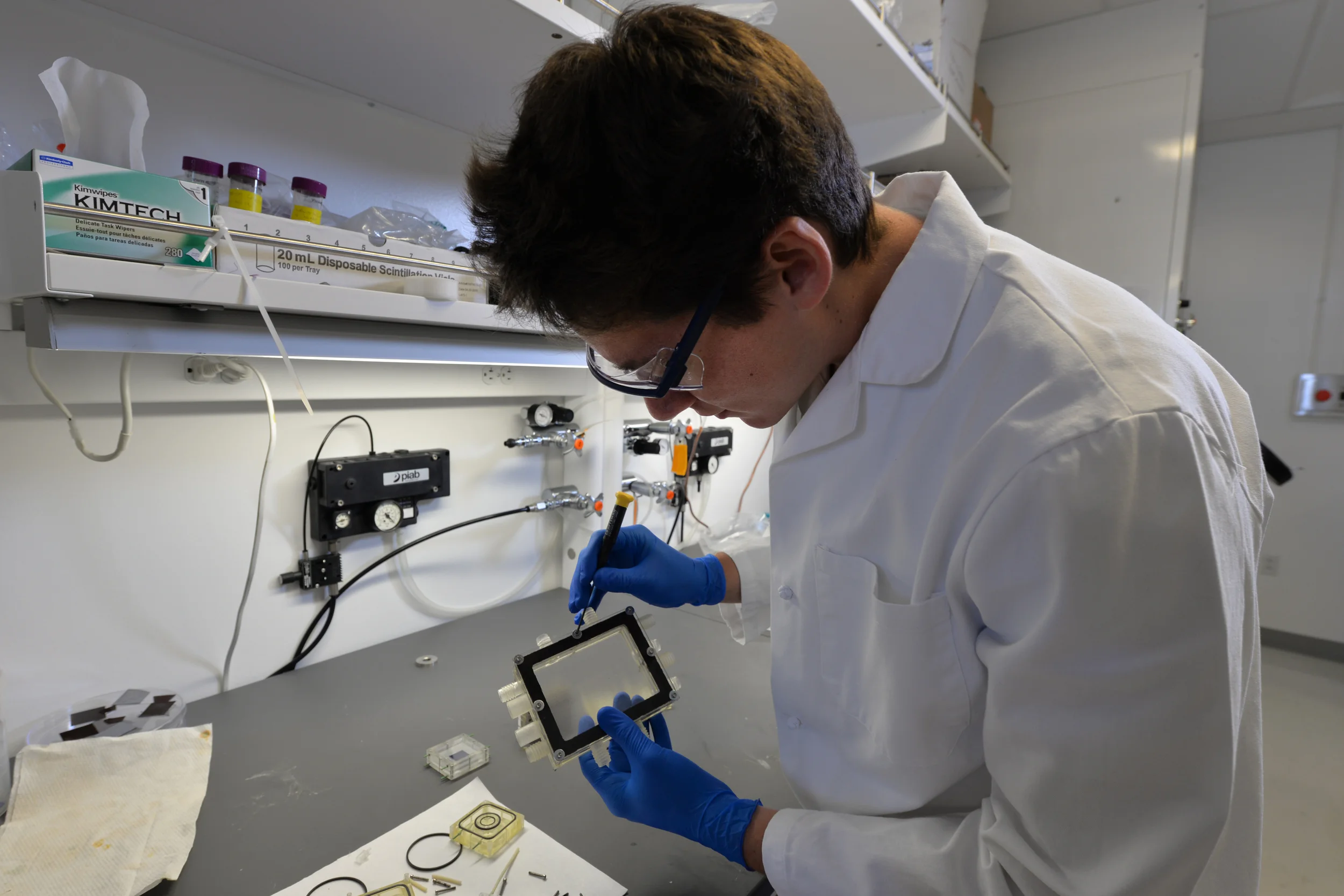Research
JCAP's research objectives are to discover new catalytic mechanisms and materials and to develop robust components suitable for integration into solar-fuels
generators
There is no catalyst, whether electrochemical or photoelectrochemical, that can reduce carbon dioxide with both high efficiency and selectivity.
The JCAP’s three major research goals include the following advances in understanding of catalytic mechanisms, materials discovery and testbed development:
Discovery and understanding of highly selective catalytic mechanisms for carbon dioxide reduction and oxygen evolution under mild conditions of temperature and pressure. These advances will inform the design of overall solar-energy-to-fuels components for key processes including light capture, energy transfer, electron transport and charge separation.
Discovery of electrocatalytic and photoelectrocatalytic materials and light-absorber photoelectrodes, followed by integration.
Demonstration in test-bed prototypes of artificial photosynthetic carbon dioxide reduction and oxygen evolution components that exceed natural photosynthesis in efficiency and rival it in selectivity. Results of these demonstrations will be used to determine the practicality of prototype solar-fuels systems.
To successfully reach JCAP's goals and objectives, the program is organized into four research Thrusts. Scientific and technological advances in these Thrusts will close major scientific gaps and help realize an integrated carbon dioxide reduction solar-fuels generator.


